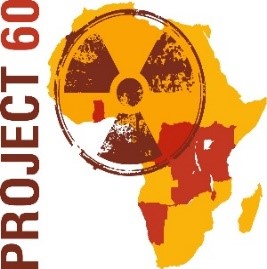 Project 60 titled “Support to the European Union Chemical Biological Radiological and Chemical Center (CBRN) of Excellence of Eastern and Central Africa in Nuclear Security” is conceived and funded under the EU Instrument contributing to Stability and Peace (IcSP) within the framework of the EU CBRN Centers of Excellence initiative.
Project 60 titled “Support to the European Union Chemical Biological Radiological and Chemical Center (CBRN) of Excellence of Eastern and Central Africa in Nuclear Security” is conceived and funded under the EU Instrument contributing to Stability and Peace (IcSP) within the framework of the EU CBRN Centers of Excellence initiative.
Geographical scope
African countries that belong to the EU CBRN Centre of Excellence (CoE) region of Eastern and Central Africa (ECA), participate in the project: Burundi, Democratic Republic of Congo, Ethiopia, Ghana, Kenya, Malawi, Rwanda, The Seychelles, Tanzania, Uganda, Zambia and Namibia.
Main purpose
The long-term goal of the project is to strengthen and harmonize the nuclear regulatory frameworks in the participating countries, to enhance their nuclear safety and security and to support their efforts to fulfil the international safeguards obligations they have assumed under a plethora of UN and multilateral treaties and conventions, such as the Nuclear Non-Proliferation Treaty, the International Atomic Energy Agency (IAEA), the Convention on the Physical Protection of Nuclear Material, the UN Security Council Resolution 1540.
Objectives
- Help upgrade and harmonize the national regulatory frameworks;
- Bolster the accountancy and control of radioactive materials and sources, including through dedicated border control systems;
- Support the detection, recovery and safe storage of orphan sources as part of national radioactive waste management policies, including through provision of training of personnel and improvement of the standard operating procedures;
- Help create or upgrade audited national inventories of radioactive sources and materials;
- Define the needs of radiation detection equipment for enforcement and border management staff;
- Assist in the development of national response plans (or additional components of existing emergency plans) for potential radiological or nuclear incidents, through the activities detailed below.
Envisaged activities
- Regional workshop on radiological and nuclear response plans;
- Train-the-trainer type courses in English and French language;
- Simulation tabletop exercises and field exercises for cross-border investigations of RN materials, for illicit trafficking, for radiological crime scene management, for uranium concentrate ore transportation, for nuclear forensic investigation (in English and French language);
- On-site expert visits and consultations;
- Reviews of national regulations and legislation.
Expected results
- Recommendations on legal and regulatory frameworks for the management of nuclear material;
- Recommendations on Radiological and Nuclear Incidents Response Plans;
- Inventories of radiological material, orphan sources and seized materials;
- Action plans for the recovery of orphan sources;
- Elaboration of lists of equipment to be delivered for training purposes and for use by enforcement and border management staff;
- Increased institutional capacity and human capabilities to address nuclear security risks
- Better information sharing and harmonization of national plans, systems and procedures in the Eastern and Central Africa region.
The Context
The countries of Eastern and Central Africa (ECA) face radiological and nuclear risks arising from uranium mining, processing and transportation as well as from the state of management of radioactive sources. As part of the development policies in the ECA countries, radioactive sources are ever more widely used in medical institutions and in industry. The licensing, handling and control of these sources, especially at the end of their economic lifetime, occasionally results in leftover orphan sources. A more efficient regulatory oversight of licensed radiation sources acquires greater importance, as do the regular inspections of compliance.
Committed to address these common challenges, several African countries together with international partners initiated the project “Support to the European Union Chemical, Biological, Radiological and Nuclear (EU CBRN) Center of Excellence of Eastern and Central Africa in Nuclear Security.” Networking and regional collaboration is the project’s driving principle to achieve sustainable results. It will strive to consolidate and coordinate existing capabilities and expertise through technical assistance and training. It will also respond to regional needs of protecting radiological facilities, denying misuse of orphan sources, monitoring borders and controlling the export and transportation of radiological materials.
Part of a Network
Project 60 is part of the European Union Chemical Biological Radiological and Nuclear Risk Mitigation Centres of Excellence Initiative (EU CBRN CoE), which was launched in response to the need to strengthen the institutional capacity of countries outside the European Union to mitigate CBRN risks. The CoE intuitive aims to improve regional security by increasing local ownership, local expertise and long-term sustainability. The CoE initiative works in 54 countries across eight different regions around the world to deliver thematically diverse projects in CBRN risk prevention, preparedness and response.

